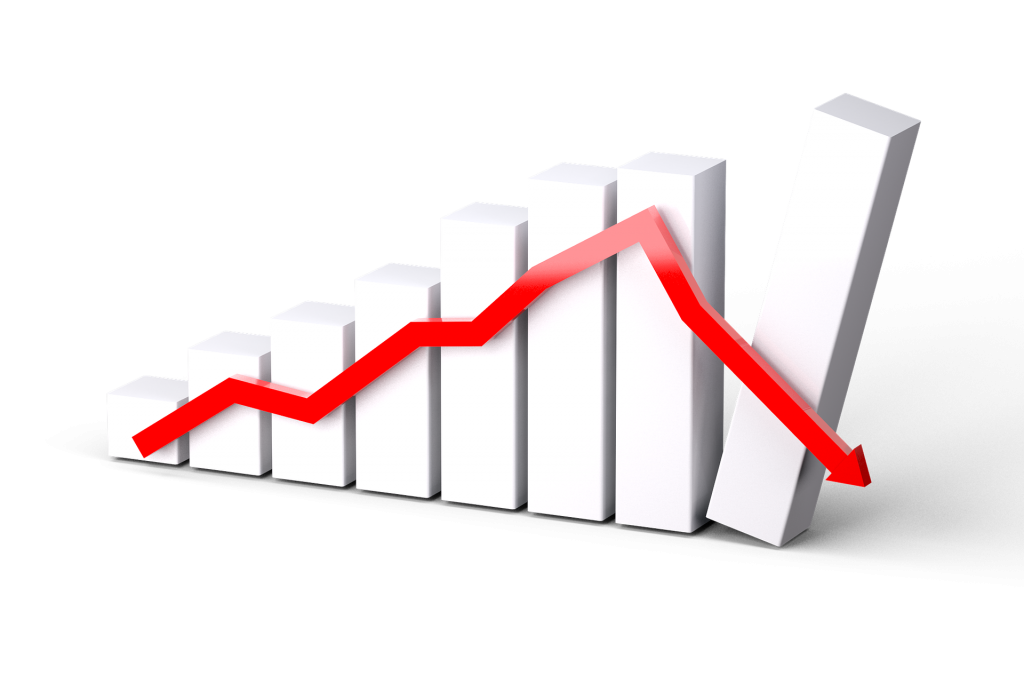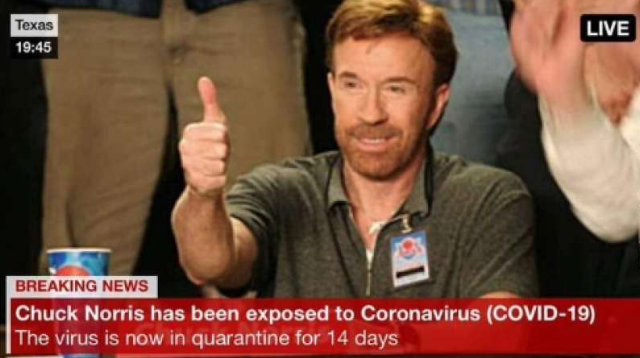What a YEAR 2020 has been. It’s an election year, the primaries have been all the rage, and not to mention in January, the USA was rocked by the possibility of World War III after a tiff with Iran that resulted in the death of Iran’s star general.
The Coronavirus has been in American news since January, and the first case of COVID-19 was first recorded in Wuhan, China, in November of 2019. Delightfully enough, the Coronavirus has become a global pandemic. Italy has been completely shut down in quarantine, and Trump has executed a travel ban to Europe.
Clearly this Coronavirus is some serious business. Trump has declared a national state of emergency. The U.S. has been promoting social distancing. The U.S. school system has come screeching to a halt. And who knows what it’ll do to our economy? Could it mean recession, or worse, could we experience a second Great Depression?
What is the Coronavirus?
The word is being thrown around and spurring mass panic and excessive toilet paper purchasing—hurray for economic implications! You stick the word “virus” on the end of anything, and suddenly it sounds like science fiction, like the end of the world is coming! From what we know now, the Coronavirus causes COVID-19 (which stands for COrona VIrus Disease 20[19]).
So what’s the big deal with COVID-19? And what will it mean for the US financially?
Symptoms of COVID-19
According to the Center for Disease Control, it sounds like the flu. You’ll start burning a fever and you’ll be coughing. Interestingly, sneezing doesn’t seem to be a key symptom, so the sneezing might just be the spring allergies.
It’s always great when allergies get easily mixed up with a global pandemic, isn’t it?
The biggest difference between the flu and COVID-19 is that when you have COVID-19, you’ll experience shortness of breath and symptoms of pneumonia (where fluids gather in the lungs). You’ll likely experience these symptoms within 2-14 days of exposure to the Coronavirus.
Sounds like the perfect spring break.
Your oxygenation levels will drop, and the odds of you needing help breathing are pretty high if you’re over 50 (right now many hospitals around the world are packed to their limit, and there aren’t enough respirators to go around).
Not to mention your blood pressure might go up from all the medical bills you’ll accrue. Don’t worry, we’ll get to the financial implications in a minute.
Who’s at Risk of Contracting COVID-19?
Right now, the highest risk are the elderly or immunocompromised. Young people in their twenties aren’t as affected by COVID-19—they’re typically healthier and more active. Those with conditions like asthma, diabetes, or heart disease should take extra precautions.
Is COVID-19 Fatal?
Interestingly, it’s hard to find a definitive answer. COVID-19 affects different people in different ways, but it looks like the elderly and immunocompromised are still the most likely to have a fatal case.
How to Protect Yourself From the Coronavirus
The CDC has provided some handy tips. To prevent passing the Coronavirus on, you should:
- Wash your hands.
- Don’t touch your face.
- Sanitize everything in your house.
- Stay away from large groups of people.
Remember, even if you’re not at high risk for contracting COVID-19, you could still be a Coronavirus vector to pass it on to others. Practicing good hygiene and social distancing could be the difference between life or death for someone, even if it’s not you. The world is more than just you, you know.
What the Coronavirus Pandemic Means for the US Economy
Now that we’ve covered what COVID-19 is, let’s look at the economic implications of the Coronavirus pandemic. Let’s start with a little background, shall we?
The State of the US Economy Before the COVID-19 Outbreak
We (and by “we”, I mean the US economy) were already floundering around like a beached fish before any Coronavirus business made the mainstream news. The economy has been running on a freakish credit cycle for decades—a good example of a (slightly more) recent recession was the 2008 global financial crisis. But the credit cycle didn’t start in 2008, obviously. Let’s go back to the Wall Street Crash of 1929, which started the Great Depression.
What Happened With the Great Depression

Life in the 20s was glitz and glamor. If you saw it, you bought it, because credit was starting to become a popular thing. Who cares if you don’t have the physical money for it? You can just pay off that fancy new car later! No big deal, right?
Unfortunately, instead of actually paying the bills, people just used more and more credit. The more credit you use and the more money you print, the less the dollar is worth.
And ever since Nixon took us off the gold standard in 1971, the USA has been on a free-floating fiat currency—meaning that it has no set value other than the value given to it by the government. Good move, Richard. This is why you got impeached. (I’m KIDDING, but he probably should’ve been impeached for that too. Talk about a gross misuse of power.)
How Credit Is Affecting the US Economy Now
Unfortunately these days, it’s not just the general populace using credit. The US government has been pumping credit into our economy like crazy for years. Overuse of credit leads to inflation, and hyperinflation renders money totally useless.
You don’t have to look very far; Venezuela has been a terrific example of useless currency, and America isn’t too far behind. The only thing keeping us from pulling a Venezuela is that the US dollar is the world’s standard currency; but it might not stay that way for long.
The US Economy With the COVID-19 Global Outbreak in Full Force
Are we headed for yet another recession? Could we repeat the fatal stock market crash from 1929 that plunged the US into the Great Depression?
How the Government Has Reacted Financially to COVID-19
On March 12th, 2020, president Trump authorized the Federal Reserve to pump $1.5 trillion of credit into the economy. The reason for all this was to “stabilize businesses” and to “keep Wall Street from collapsing”. But when you run a national economy on credit, the bubble will just keep growing—and you could look at 2008’s financial collapse as a great (great as in “relevant”, not as in “desirable”) example of the bubble bursting.
The federal government hasn’t just allocated money to the banks. They’re giving American citizens their tax returns early, as credit. I think you see where this is going. Credit births more credit, and never seems to produce any real, viable solutions.
How Americans Have Reacted Financially to COVID-19
You’ve seen the news. People have been panic-buying in bulk, the same way stockholders panic-sold in 1929. Toilet paper, hand sanitizer, and non-perishable goods have been flying off the shelves.
Who knew toilet paper was the single most important thing in a quarantine? You’d think it would be canned beans or something.
But there’s been a hiring freeze and multiple travel bans, and with Americans staying home from work and travel, the economy is going to slow down substantially. Not to mention the average American overuses credit—the average credit card debt for one American household is over $7,000.
Right now, one of the only businesses booming from the Coronavirus pandemic is the meme industry.

We might all die, but at least we’ll have a good time while we’re dying. Oh, look! A guy in a Hazmat! What a good joke. Too bad memes aren’t currency—actually, on second thought, we probably don’t want it as currency… we just keep making more and devaluing them…
Are We Headed for a Huge Financial Collapse?
If we don’t look at history, we’re doomed to repeat it. As it was in the 20s and 30s, the stock market crash was SO BAD that it shut down the nation’s economy for around a decade. Now, as a country, we’re so connected that any sign of an economic collapse could likely set us up for a Great Depression: The Sequel.
Based on the amount of credit in the economy and the volatility/instability in the stock markets, we could very well be on the verge of a major recession—and the Coronavirus pandemic could be the catalyst for a major recession—and yes, even a depression.
How does it feel to live in a future World History book?
Whenever the federal government over-regulates the economy like it’s doing now, the economy corrects itself less and less—and if the economy can’t completely correct itself, we’re headed for a crash.
It’s alright, we’ll weather it out in our fortresses of toilet paper.